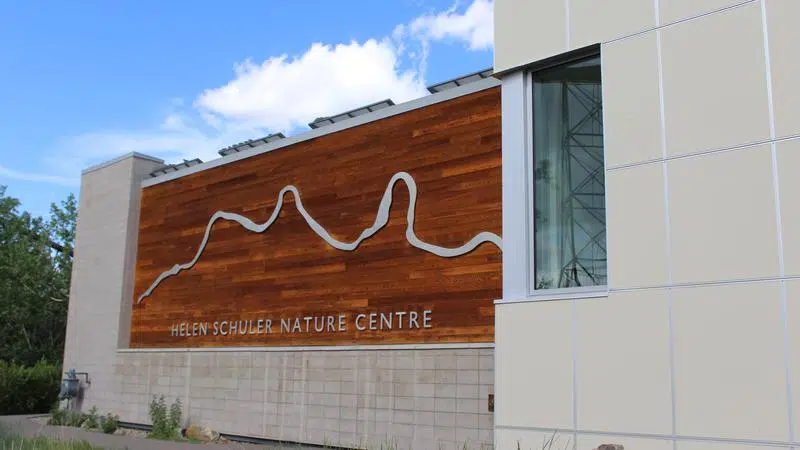
Pollinators in the spotlight at Helen Schuler Nature Centre
LETHBRIDGE, AB – There’s a new exhibit at the Helen Schuler Nature Centre that’s putting the focus on different types of pollinators.
Program coordinator Jessica Deacon-Rogers said the exhibit shines the spotlight on non-bee pollinators, as the general thought when one hears “pollinators” is a honeybee.
The idea came from a past exhibit focused on native bumblebees. Deacon-Rogers said they found that people did not know much about native be pollinators and non-bee pollinators, and they wanted to create awareness about other types of pollinators.
“Things like moths and butterflies are really important pollinators locally – native bee species like bumblebees, sweat bees and mining bees are types of bees that many people forget that are also extremely important for pollination locally,” she explained.


